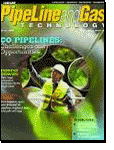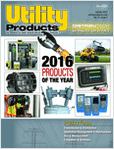How Centrifugal Pump Works?
Friday, September 07, 2012
Do you know how a centrifugal pump works? In university, you can learn more about it at the Fluid Mechanics laboratory (hopefully the lab has a lab scale centrifugal pump). If you are working in a plant or refinery, chances are you already know about centrifugal pump.
It is
indeed interesting to learn how this equipment works. A centrifugal pump
operates by converting kinetic energy into potential energy measurable
as static fluid pressure at the outlet of the pump. The famous
Bernoulli's principle is applied in this process.
With
the mechanical action of an electric motor, the rotation of the pump
impeller exerts kinetic energy to the fluid via centrifugal force. The
fluid is then drawn from the inlet piping into the impeller intake eye
(inlet) and is accelerated outwards through the impeller vanes to the
volute and outlet piping (outlet).
As the fluid exits
the impeller, if the outlet piping is too high to allow flow, the fluid
kinetic energy is converted into static pressure. If the outlet piping
is open at a lower level, the fluid will be released at greater speed.
This can be further explain later when we cover the aspect of net
positive suction head (NPSH).
Now, for extra understanding, you can watch some videos that I personally select from youtube to provide better view of the external and internal parts of a centrifugal pump. In addition, the video also explains about the type of impellers for centrifugal pump.
Click the link --> Centrifugal Pump Principles.
Update: I also used a type of pump for my research but it is called syringe pump. It is a smaller instrument/ equipment which is imperative for my study which I used to pump glycerol into my quartz reactor. The syringe pump alongside with other analytical chemistry instruments are also available in my lab room for fast and simple testing.
................................................................................................................................




Have you downloaded my free "Choosing Alternative Fuel" Ebook? If not, then please download it here. It's Free and on top of getting the free ebook, you'll get eCourse on Alternative Fuel. It's a good and easy way to add more valuable information to yourself.
posted by Kipas Repair JB @ 10:55 PM,
![]()
0 Comments:
The Author

I’m Zaki. I used to be a project, process and chemical engineer. Few years ago I successfully became a Chartered Engineer (IChemE) and Professional Engineer (BEM). I'm now employed as a chemical engineering educator/researcher/consultant. Hope you like reading my blog. I welcome any feedback from you. My email: zaki.yz[alias]gmail.com. TQ!



